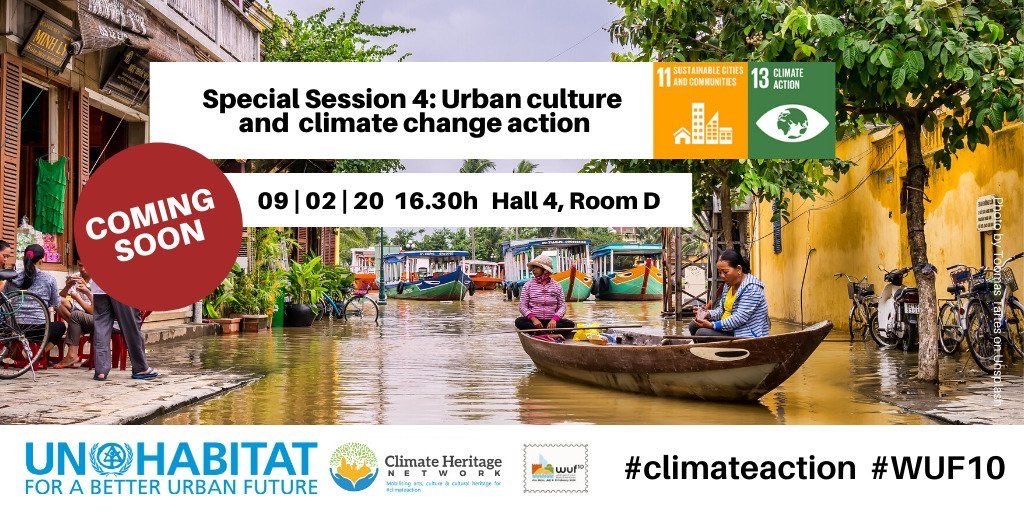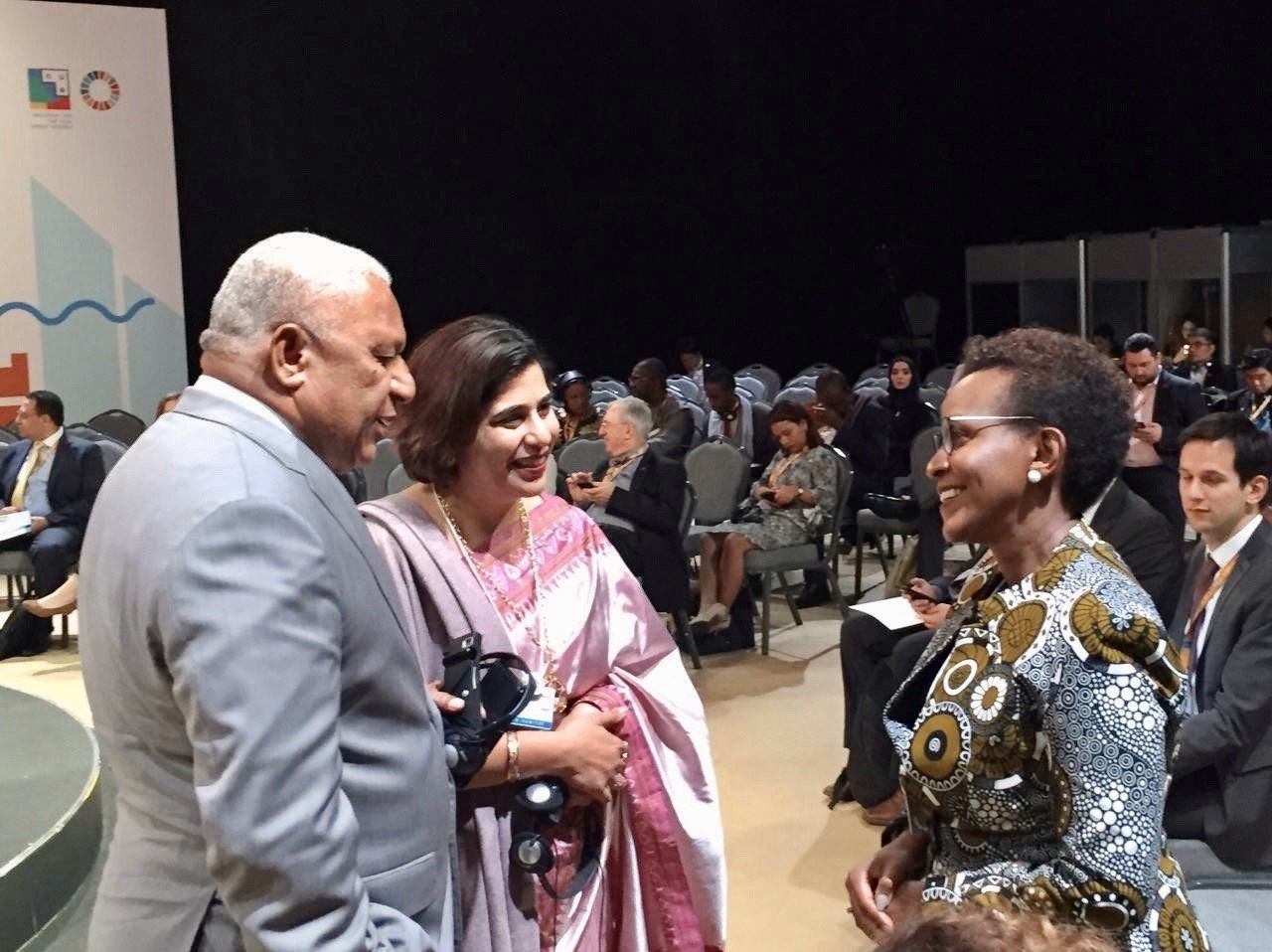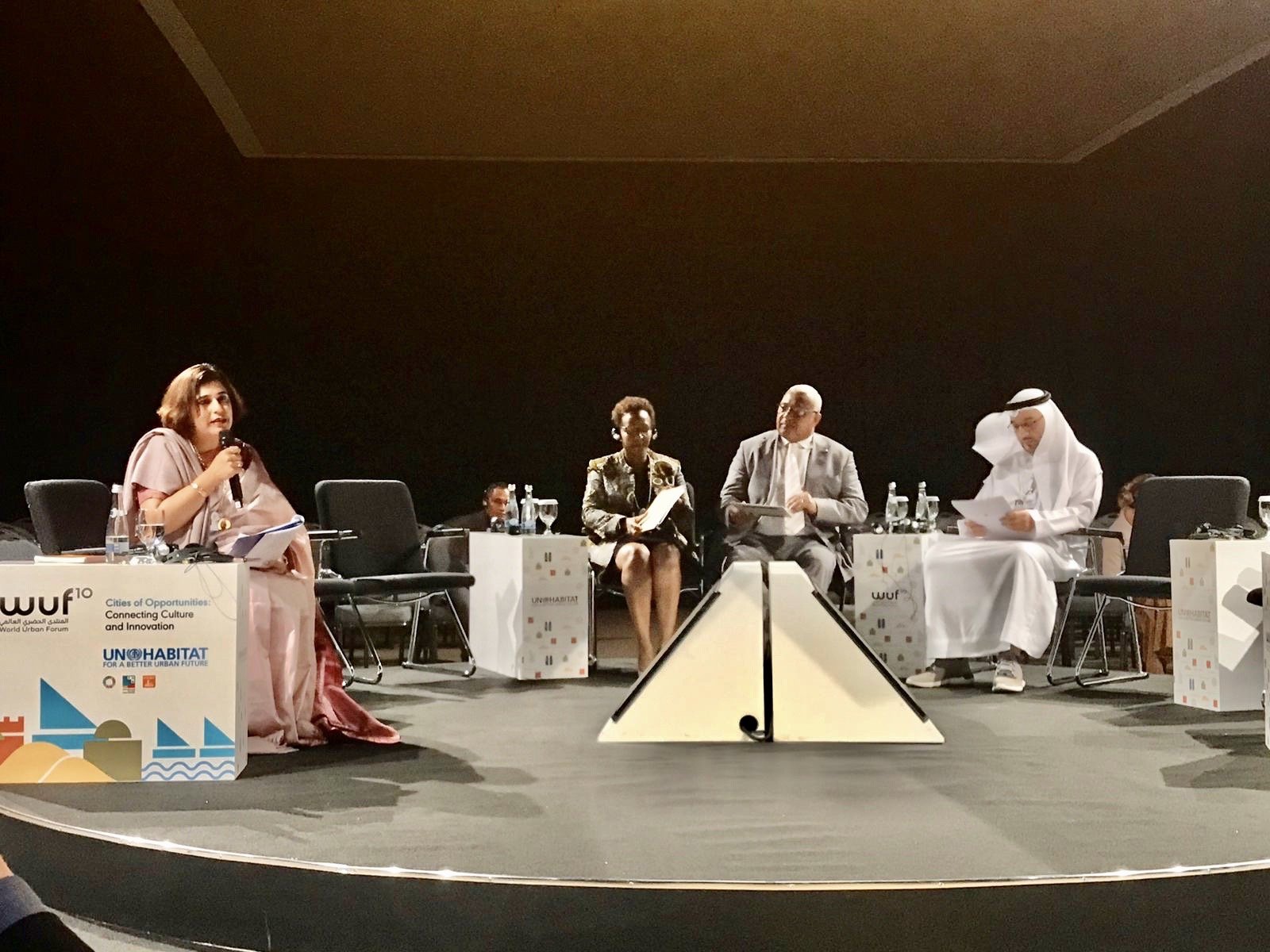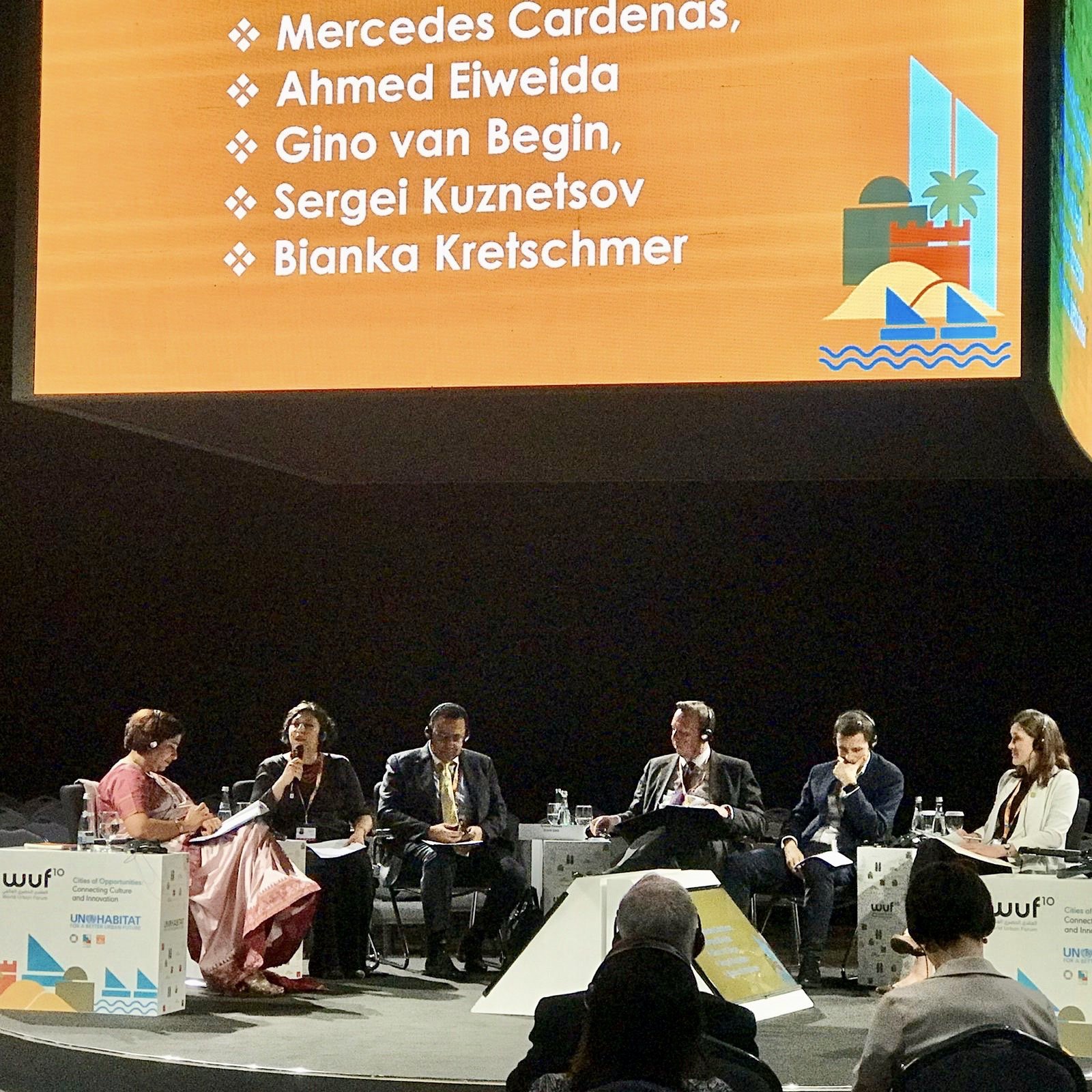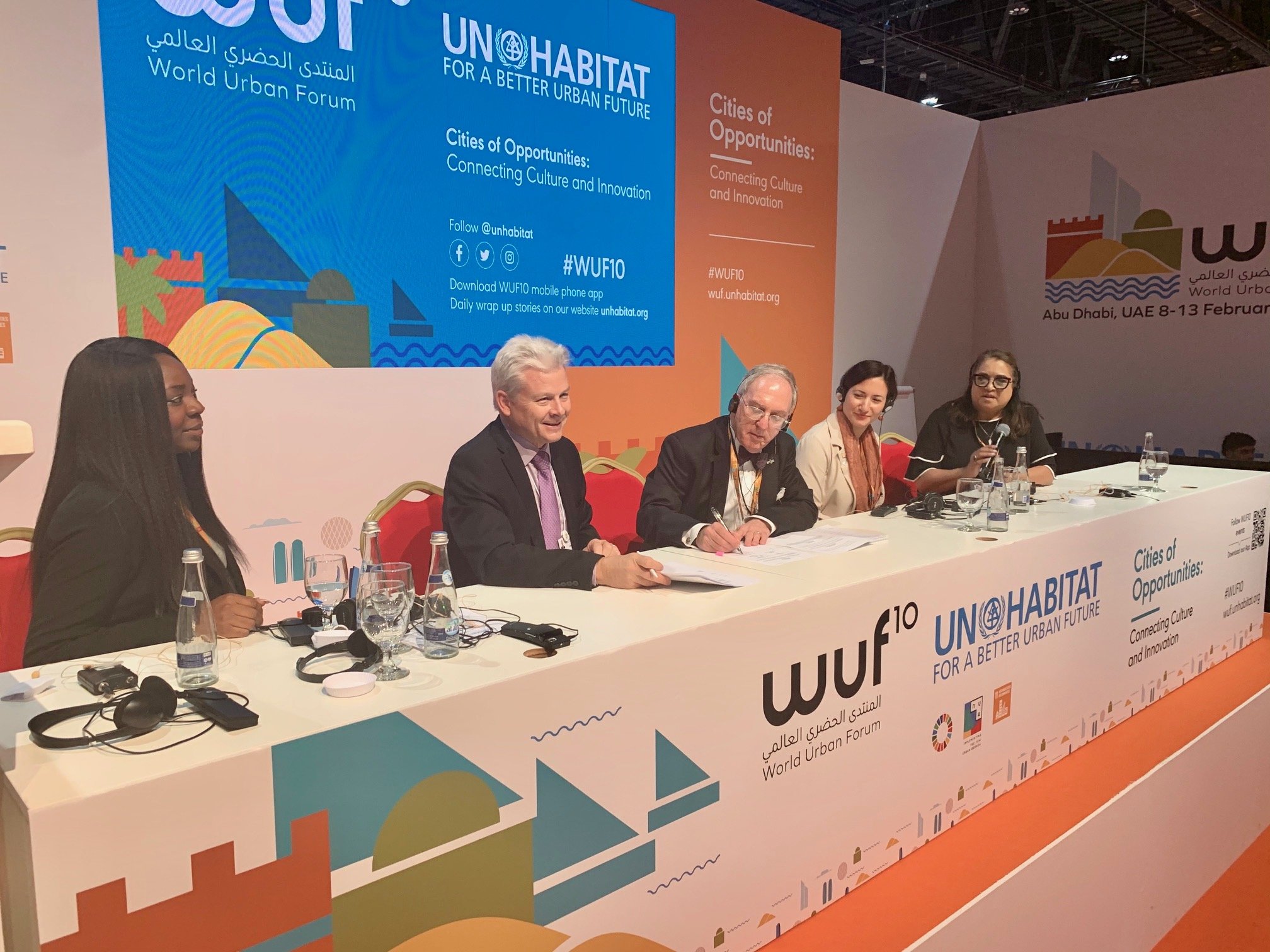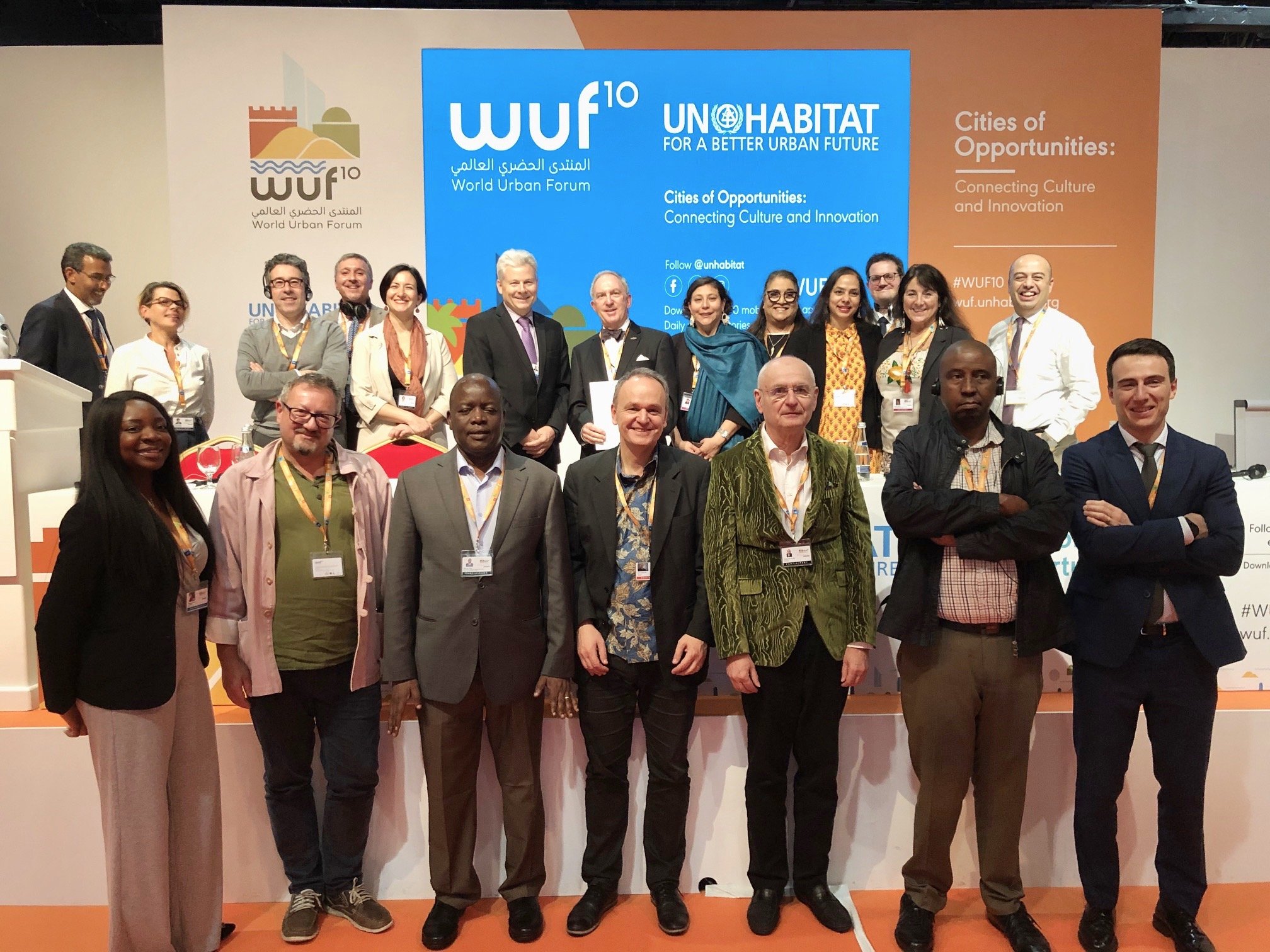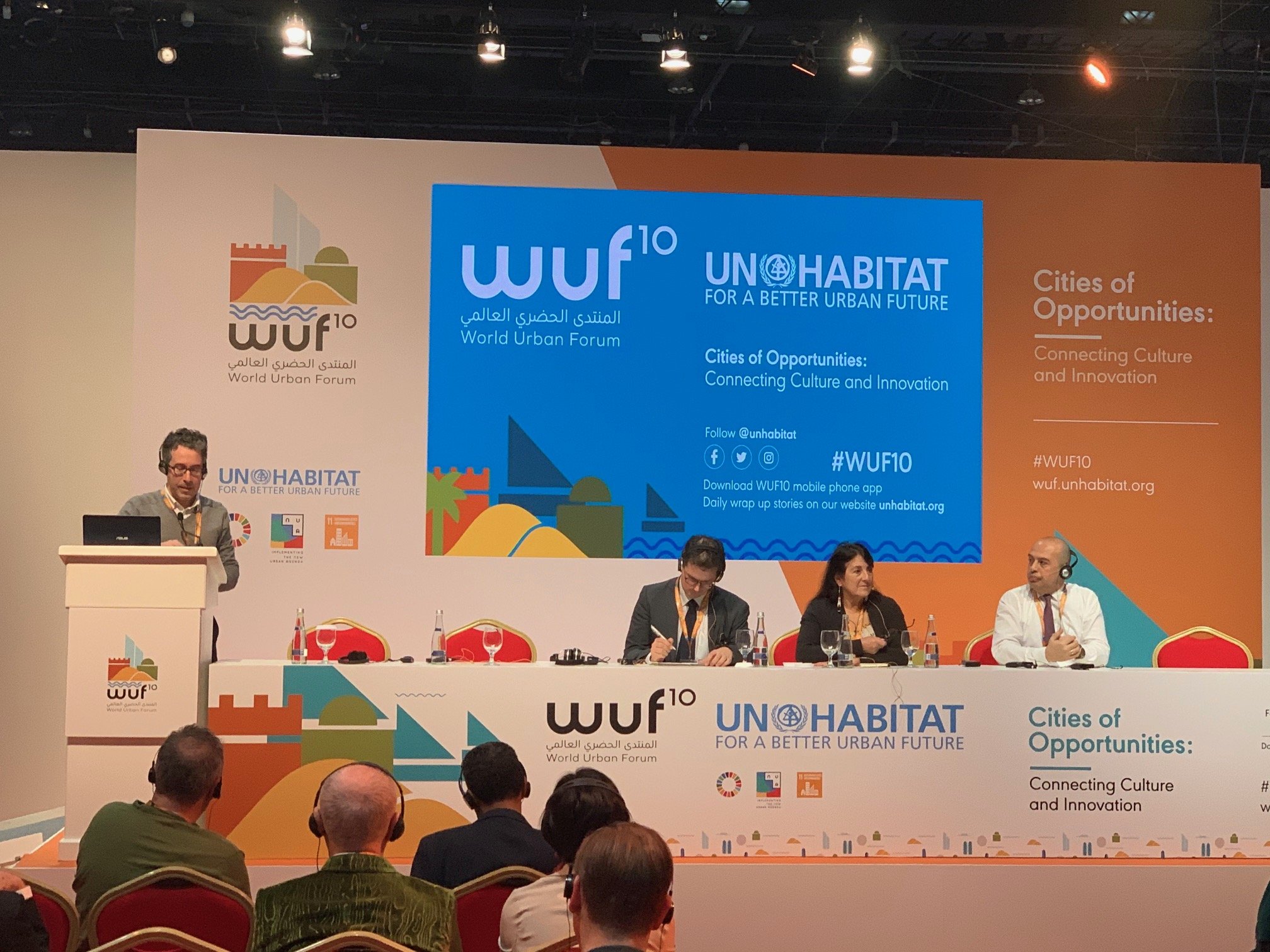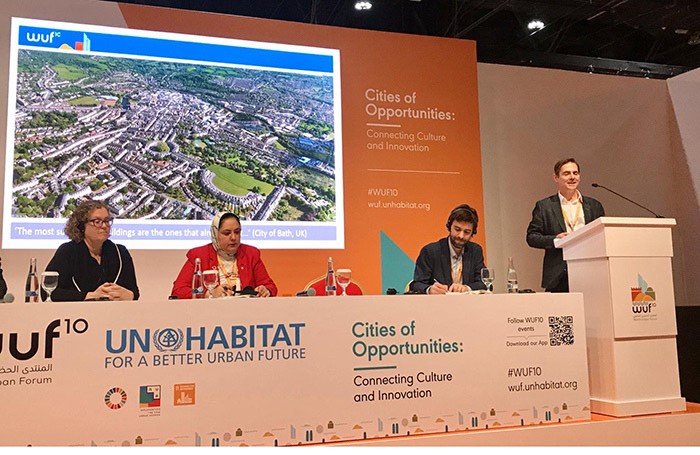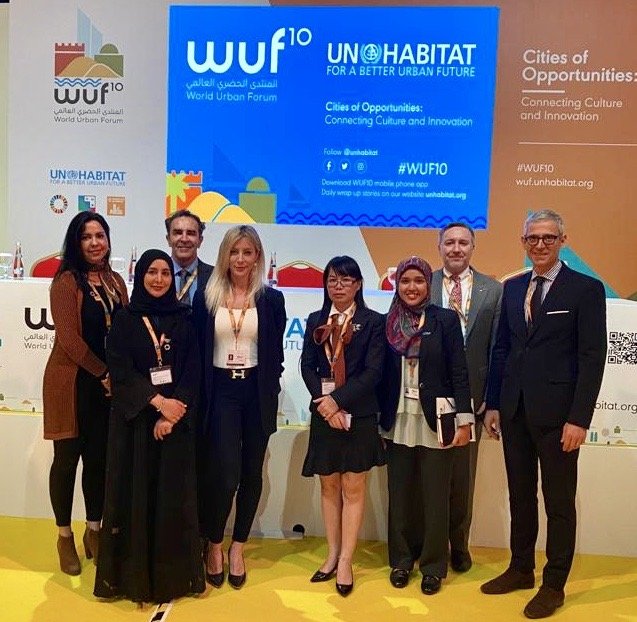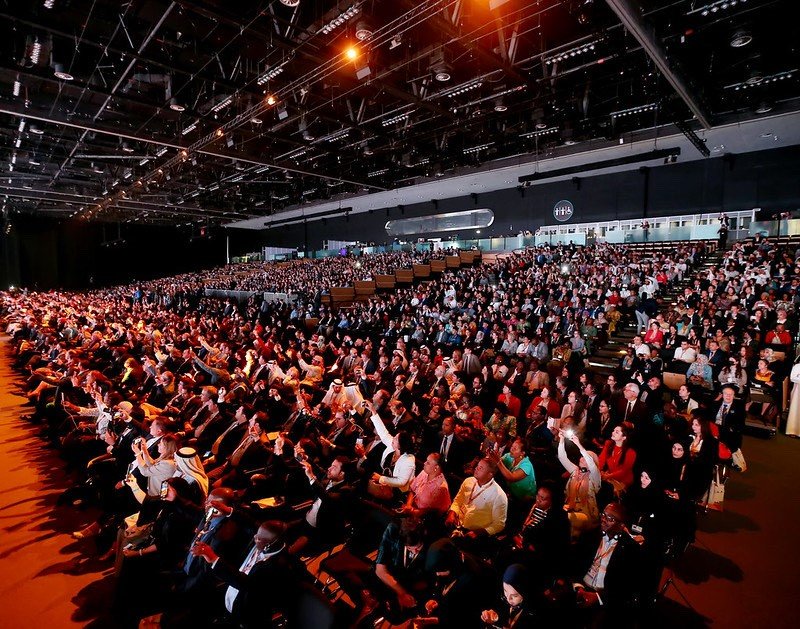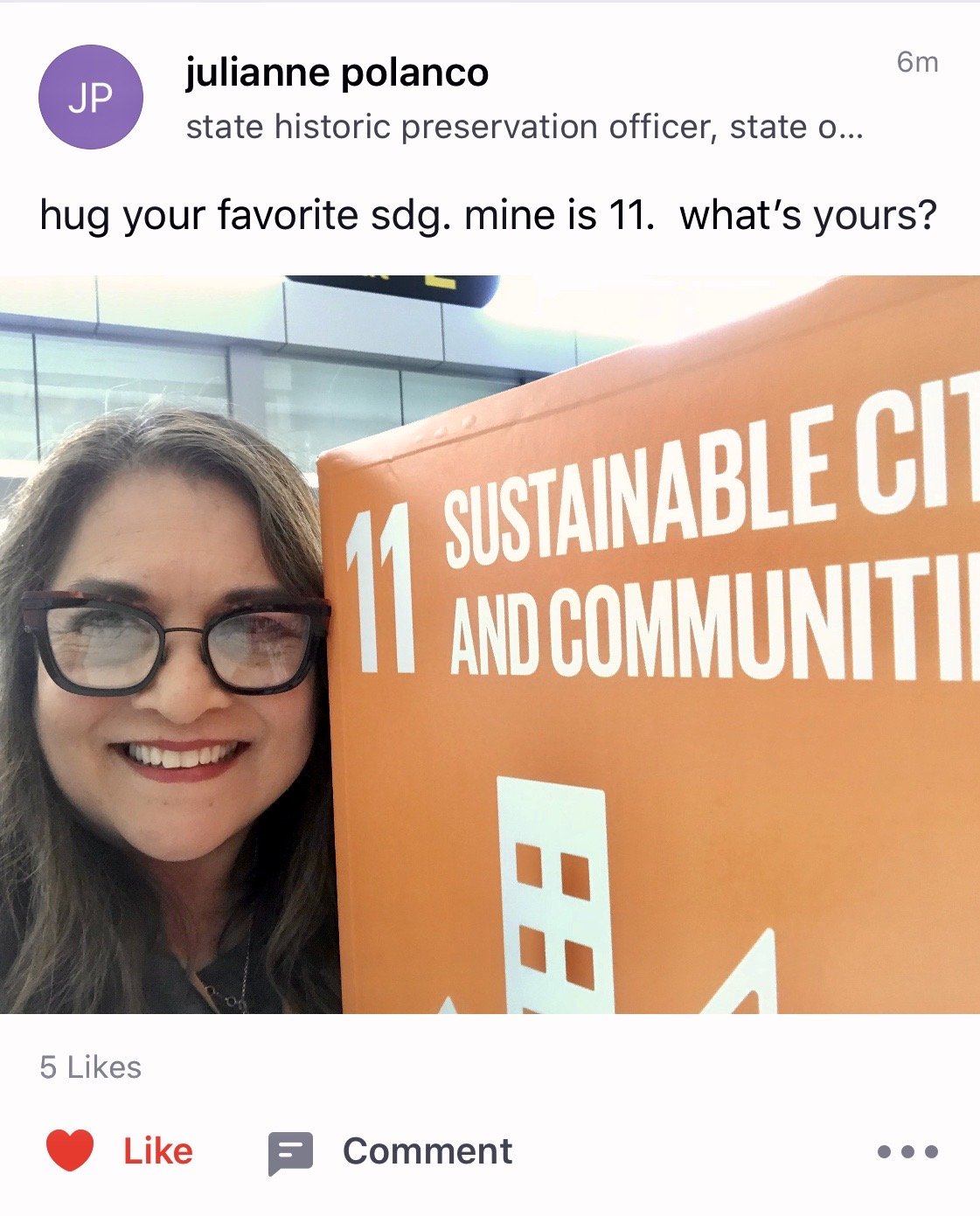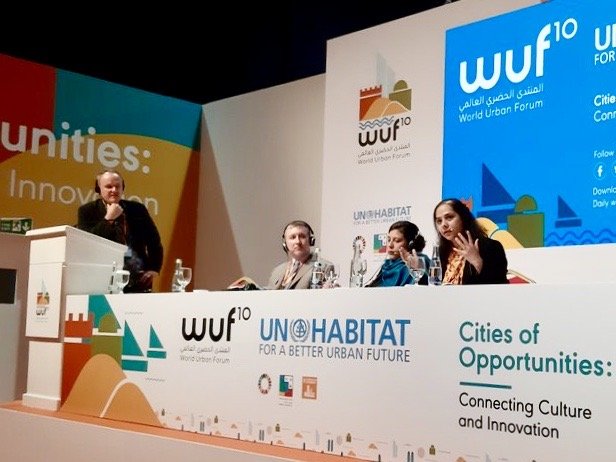World Urban Forum 10: A Breakthrough Moment for Cities, Climate Change & Culture
“There is a special place that our pacific heritage has had in shaping our perspective..fuell[ing] our urgency in combatting climate change. It above all else has inspired every innovation & ambitious action that we as a nation have embraced.”
The immense potential of cultural heritage to drive just and transformative climate action often goes untapped. The recently concluded World Urban Forum 10 broke new ground in the global recognition of this potential, boosting efforts to mobilise arts, culture and heritage for climate action across the globe.
The World Urban Forum (WUF) was established in 2001 by the United Nations to address one of the most pressing issues facing the world today: rapid urbanization and its impact on communities, cities, economies, climate change and policies. Convened by UN-Habitat (the UN’s cities and human settlements programme), the Forum is a high level, open and inclusive platform for addressing the challenges of sustainable urbanization. The tenth Session, WUF10, was held in Abu Dhabi, UAE from 8-13 February 2020, under the theme ‘Cities of Opportunities: Connecting Culture and Innovation.’ The Climate Heritage Network (CHN) and its Members participated extensively. with enormously promising results. The CHN will be working hard with partners including UN-Habitat to leverage the #ClimateHeritage advances made at at WUF10, focusing on making in progress in advance of the UN’s 2020 Climate Summit (COP26) scheduled for November in Glasgow, UK.
First Ever High Level UN Event on Culture and Climate Change
“These sessions brings to together 3 topics very, very close to my own heart — cities, climate and heritage — and it’s an unusual combination and we will have an unusual conversation.” –Dr. Shipra Narang Suri, UN-Habitat
What do heads of state, climate ministers and policy leaders think about the intersection of cultural heritage & climate change? To be honest, we mostly don’t know. It’s a topic they’re rarely asked about. That is, until now. The Climate Heritage Network was proud to partner with UN-Habitat for a Special Session at the 10th edition of the World Urban Forum that explored these themes. The session, entitled ‘Urban Culture and Climate Change Action: The intersection of urban cultural heritage and climate change,’ was perhaps the first-ever high level segment at a UN Summit to combine these topics, The session was moderated by CHN Steering Committee member Dr. Shipra Narang-Suri of UN-Habitat, with CHN Coordinator Andrew Potts of ICOMOS providing closing remarks.
Welcoming remarks were made by H.E. Eng. Fahed Al Hammadi, Acting Assistant Undersecretary, Green Development & Climate Change Sector a the UAE’s Ministry of Climate Change and Environment. The minister set the stage this way: “Cultural and natural resources are vulnerable to [climate change’s] impacts & must be a core focus area of global climate action because once they’ve disappeared, they never can be replaced & we will lose all the benefit they offer.”
A keynote addresses by H.E. Frank Bainimarama, Prime Minister, Republic of Fiji provided rare insight into what leaders at the highest levels think about the cultural dimensions of climate change. As not only a head of state but the President of COP 23, Mr. Bainimarama is uniquely positioned to know. “Sometimes,” the Prime Minster began, “progress is not encased in glass & concrete, & solutions aren’t found in a software update. Sometimes it’s best to take a step back from it all & take wisdom from our roots, our history and our heritage.” Prime Minister Bainimarama ended his WUF10 talk with this #ClimateHeritage call to action:
“Rather than allowing climate change to reshape our cultures, by working together we can use our cultures to reshape clime change. Let’s do it now before it’s too late.”
Scenes from the WUF10 High-Level Event on Culture, Cites and Climate Change
Joyce Msuya, Deputy Executive Director, UN Environment Programme, was the final speaker of the high-level segment. She observed:
“The link between cultural and natural heritage and the role the two can play in tackling climate change runs far deeper and longer.”
In her remarks, Ms. Msuya also coined a new phrase — the 3 C’s: cities, climate and culture. It’s a phrase the Climate Heritage Network hopes make stick as we work to shift The 3Cs from an ‘unusual’ to a “usual’ policy combination. The full text of Ms. Msuya’s comments have since be published online by UN Environment.
The high-level panel was followed by a second panel that included CHN expert Mercedes Cardenas of Quito, Ecuador and Gino van Begin, Secretary General of ICLEI – Local Governments for Sustainability (which is a CHN Steering Committee member), a well as Ahmed Eiweida, Cultural Heritage and Sustainable Tourism, World Bank; Sergei Kuznetsov, Chief Architect of Moscow; and Bianka Kretschmer, Sr Climate Change Analyst, Adaptation Fund.
Ms. Cardenas stressed the need for #climateheritage processes to be participatory: “heritage is not only the buildings but the people and we have to take care of the people, and give them a voice, and respect their knowledge,’ she said. Mr. Eiweida recommended the assembled think of ‘cost of doing nothing for heritage and climate,’ noting he had not seen reliable assessments. ‘Raise cultural heritage in the climate discussion. I think it is definitely missing,’ concluded ICLEI”s Gino Van Begin. Ms. Kretschmer, whose work is in financing adaptation, noted that there is an urgent need to protect culture heritage from climate change impacts but also that cultural heritage is ‘an important tool to enable community resiliency.’ Climate adaption is most effective when it’s based on climate science but also on traditional & local knowledge systems, she said, also referencing Article 7.5 of the Paris Agreement.
Closing remarks were provided by Andrew Potts of ICOMOS. Mr. Kuznetsov had earlier observed that he felt we are not using all the resources that learning from our heritage presents. Mr. Potts bulit on this observation: “We have an emissions gap. Behind that is an ambitions gap, How can we close these gaps? What haven’t we tried? Who’s not at the table?,’ he said. ‘We’re not at the table. We haven’t been tried! We need to mobilize arts, culture & heritage for climate action. Close the ambitions gap and close the emissions gap.”
New MOU will Strenthen CHN
Photos (L to R): (1) Signing the new MOU by UN-Habitat’s Raf Tuts [center left] and Peter Phillips of ICOMOS [center right], as Julianne Polanco, CHN Co-Chair [far right] and Ege Yildrim, ICOMOS Focal point for the SDGs [2nd from right] look on; (2) Celebrating the execution of the new MOU; (3) Jordi Pascaul of UCLG [standing] moderates a panel at the CHN’s networking event at WUF10 featuring [L to R] Stephen Wyber, Andrea Carmen and Yunus Arikan.
In a major advance for the mobilisation of arts, culutre and heritage for climate action, WUF10 served as the backdrop for the execution by UN-Habitat of a new Memorandum of Understanding which includes collaboration for the strengthening of the Climate Heritage Network. The MOU was signed with the International Council on Mounuments and Sites (ICOMOS), which serves as the CHN’s Secretariat. The MOU was executed at a ceremony attended by Mr. Rafael Tuts, Director, Global Solutions Division, UN-Habitat and Mr. Peter Phillips, Secretary General of ICOMOS. In his remarks, Mr. Tuts observed that the MOU signing was a fitting way to mark the newly launced UN Decade of Action to deliever on the UN’s sustainable development goals by 2o30.
We will hold leaders to account and point to what is possible when action delivers results. implment the sustainable development goals. The MOU offers enormous potential to help scale-out the CHN message that arts, culture and heritage
The new collaboration will focus on areas of mutual interest involving climate change and cultural heritage. Activity 6 from the new CHN’s new Madrid-to-Glasgow Arts, Culutre and Heritage Climate Action Plan will be an initial area of focus. UN-Habitat has agreed to co-coordiante the activity along with Historic Englang. The activity, entitled ‘Coordinating Cultural Heritage Safeguarding and Climate Action’ aims to promote strong linkages to urban and territorial planning policies and impact assessment processes. The Activity could also include creation of a FAQ document addressing questions about the potential of cultural heritage to be a barrier to climate action (zoning, land use, design guidelines etc.). Another benefit of the new collaboration is the potential for deeper coordination with Planners for Climate Action (P4CA), another initiative that UN-Habitat helps support.
The MOU signing ceremony was the culmination of a networking even the CHN hosted at WUF10 entitled ‘Mobilizing Arts, Culture and Heritage for Transformative Climate Action in Cities and their Territories.’ The goal of the session was to feature CHN members who are using arts, culture and heritage to drive transformative climate action in cities and territories.. Opening remarks at the session were provided by Julianne Polanco; CHN Co-Chair and Director, California Office of Historic Preservation, Marcus Mayr, Climate Change Planning Unit, Urban Planning & Design Branch, UN-Habitat and Andrew Potts, of the CHN Secretariat.
A panel discussion followed on ways that cultural heritage can supporting GHG reduction and climate mitigation in cities by promoting reuse of existing buildings as well as historic settlements patterns that support low-carbon living, including in the urban context as part of good urban and territorial planning. The panel was moderated by Eric Huybrechts Director of International Affiars, Institut Paris Region Culture. Panelists included Daisy Narayanan, Director of Urbanism, Sustrans Scotland; Mercedes Cardenas, Lead Specialist, Quito Metropolitan Heritage Institute; and ICOMOS’s Andrew Potts.
A second panel moderated by CHN Steering Committee member Jordi Pascual, coordinator of the UCLG Culture Committee, focused on “Defining new ways for collaboration between climate action and resilience efforts and the arts, culture and heritage sectors to support transformative climate action in cities and regions.” Panellists included Stephen Wyber, Manager, Policy and Advocacy, International Federation of Library Associations and Institutions (IFLA); Andrea Carmen, Executive Director, International Indian Treaty Council (IITC); and Yunus Arikan, Director of Global Advocacy, ICLEI – Local Governments for Sustainability.
Excerpts from the new UN-Habitat MOU on Strenthening the Climate Heritage Network
‘The collaboration between the Parties will be implemented with a focus on the 4 key result areas (Domains of Change) of the UN-Habitat Strategic Plan 2020-23 as follows: … (c) Bringing climate and heritage actions closer together (Domain of Change 3);
Particular emphasis will be placed on the need to support rapid and far-reaching transitions in land, energy, industry, buildings, transport, and cities needed to mitigate and adapt to climate change and achieve the ambitions of the UNFCCC’s Paris Agreement, by working towards harnessing the immense and virtually untapped potential of heritage to drive climate action in cities and regions and support ethical and equitable transitions by communities towards low carbon, climate resilient development pathways.’
CHN Members Stress Culture, Cities and Climate at WUF10
Below, at WUF10 (Clockwise): (1) Geoff Rich of CHN member FCBStudios Partner spoke as part of the event on “Heritage & Culture-led development: A new paradigm towards Sustainable Architecture” organised by International Union of Architects, African Union of Architects, Consortium for Sustainable Urbanization and the International Federation of Landscape Architects. (2) the WUF10 closing ceremony. (3) Andrew Potts of the CHN Secretarait joined a panel organized by France along with the Global Alliance for Buildings and Construction on hte topic “Culture and innovation in buildings – for a world below 2°C.” The session explored how architectural heritage can be a source of innovation in reaching the Paris Agreement and keeping global warming below 2°C. (4) Our indefatigable CHN Co-Chair Julianne Polanco, Director of the California Office of Historic Preservation, showcasing her favorite UN Sustainable Development Goal. (5) At the CHN Networking Event, Daisy Narayanan, Director of Urbanism, Sustrans Scotland makes a point about the role of culture in making dense, walkable cities work, while Mercedes Cardenas, Andrew Potts and Eric Huybrechts look on.

